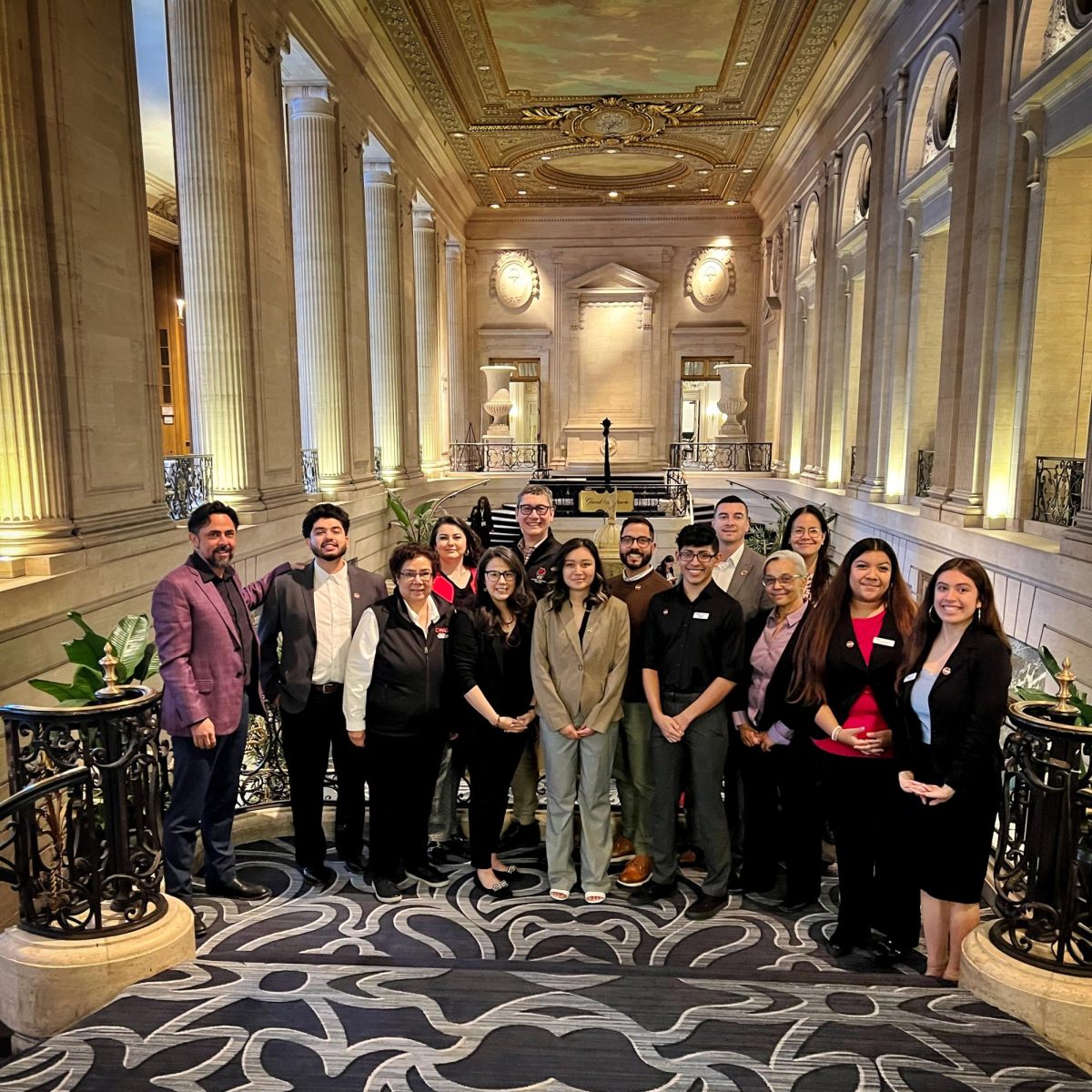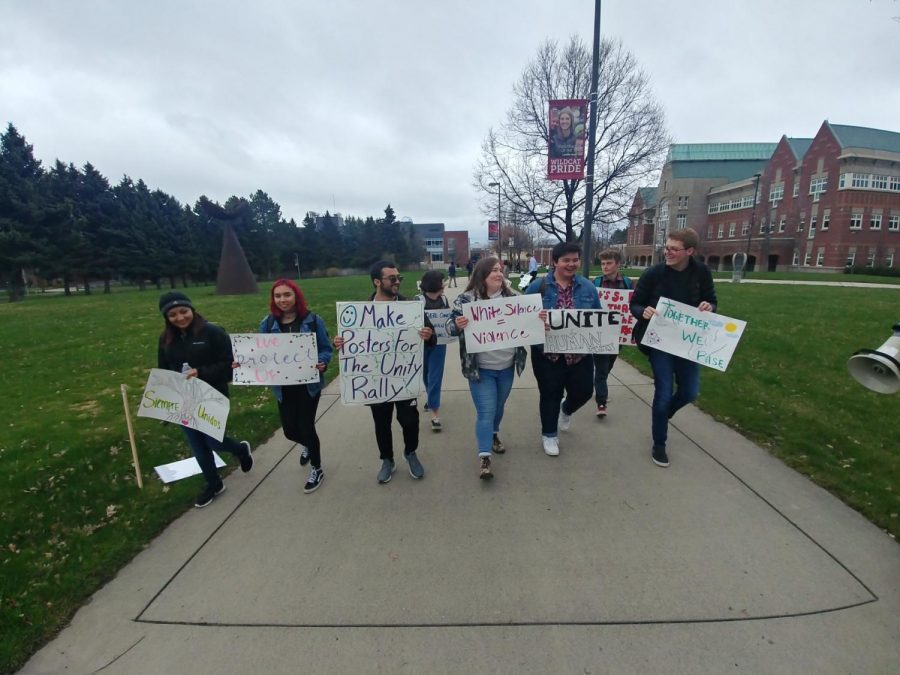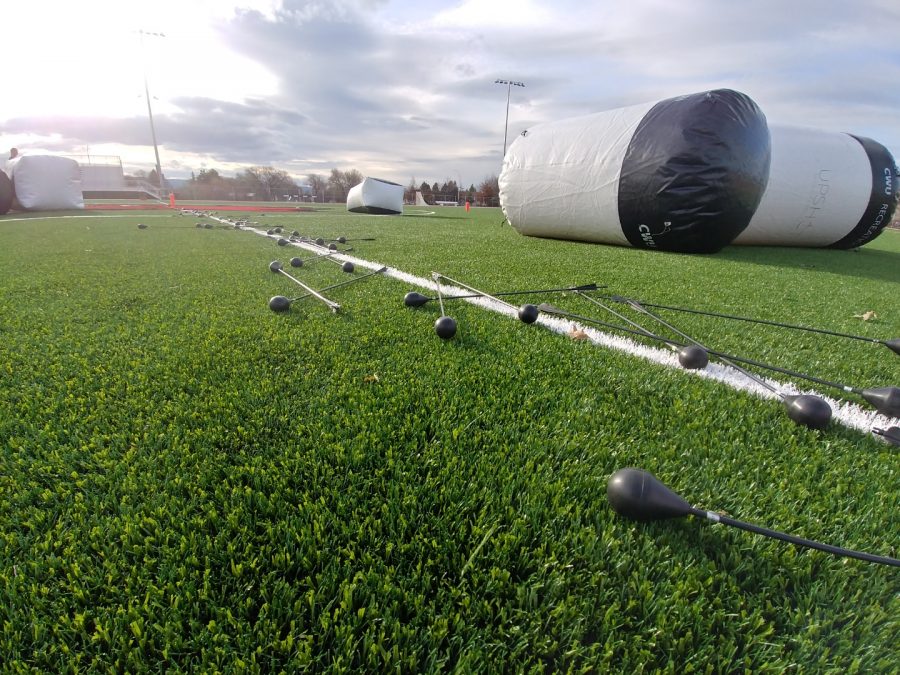By PATIENCE COLLIER
Staff Reporter
As the last two chimpanzees at the Chimpanzee and Human Communication Institute, Tatu and Loulis, are expected to depart for a sanctuary in Canada by September 1st, the university is working to ensure the future of the primate behavior program.
“The primate behavior program, both the Masters and the Bachelors program will continue,” Mary Lee Jensvold, former director of CHCI said. She explained that the primate behavior program is unique enough to Central that it would continue, but that she was not sure there would be as many students enrolled in the program.
While the program will continue, the questions are now more focused on how exactly that will be accomplished, and what resources are possible to ensure that students’ learning is not interrupted. Jensvold said that other experiences may develop, but the experience will not be the same.
Kirk Johnson, dean of the college of sciences, agreed that there would be no issue about the program ending, also noting the importance of Central’s primate behavior program. Johnson said that most students who go into primate behavior at other universities would now have to shift their focus more towards biology, or psychology.
“This has a broader focus, anthropology, biology, some psychology mixed in, and that’s unusual. I think there’s still a demand for the focus area that we have,” Johnson said. Other universities, he explained, tend to focus on one area of primate behavior, rather than the wide variety in study that Central has offered.
The departure of Tatu and Loulis is still a loss for the program, Jensvold confirmed. Students may have trouble finding the experience they were previously accustomed to.
“The difference is the students won’t have the intense husbandry experience they had here,” Jensvold said. “They will still learn about chimps, but not first-hand.”
Jensvold noted the chimpanzees as a major draw for the program. She said she was not sure how many students would be interested in the program without the first-hand experience they would have had with live animals.
“It will continue, it’s such a unique program,” Jensvold said. “I don’t know if there will be as many students.”
Johnson agreed that the program might suffer short-term enrollment losses, but said that he did not think the losses would be sustained. Johnson believes that those in charge of the primate behavior program would be able to find a way to maintain enrollment.
“It’s expensive, but they’re certainly looking at options like sending students to other kinds of sanctuaries and zoos,” Johnson said. “Some people are interested in the large primates, the only way we can do that is to send them to locations where those large primates are.”
He added that another option is still under consideration: the possibility of students studying data collected when the chimpanzees had been in Ellensburg.
For much of the past year, faculty members had been researching the issue of how to move forward with the primate behavior program. But with only two remaining chimpanzees, it was a bad situation for the animals’ welfare. Also, in order to keep Tatu and Loulis in Ellensburg, they would need to bring in new chimpanzees, but the CHCI building would need nearly two million dollars in renovations to make it possible.
The non-profit organization Friends of Washoe, who owned the chimpanzees, made the decision to move them to a larger sanctuary this past May, rather than wait for the university to make a decision. They chose the Fauna Foundation, a wildlife sanctuary in Quebec, Canada, to be the chimpanzees’ new home.
With the building no longer housing live chimpanzees, the university is looking at potential uses for the space. Options, Johnson said, included some form of an exhibit, electronic or physical, to pay a sort of homage to the original purpose for the building.
Linda Schactler, Executive Director of Public Affairs, confirmed that the university was already examining the CHCI facility for future possibilities, but that it would still need some work before it could be used for anything.
“We already have started taking a look at the building, to see what kind of shape it’s in, what kind of uses it could be adapted to,” Schactler said. “It was built in early 1990s, so it’s been in pretty heavy and hard use for twenty years, so I’m sure there will be things that were required.”
Schactler also said that because the university had been granted some money in the recent legislative budget for minor works, updating the building to allow continued is a possibility.
“They simply take our money, and give it back to us,” Schactler said, regarding the legislative funds needed for CHCI renovations. “They ask us to list the kinds of projects we want to spend it on. It was in a list of projects that needed work, and there were forty. But we’ll still have to fix that building up, it will need work regardless.”
Reserve a chance to see the Chimposium and Tatu and Loulis before they leave Ellensburg by visiting friendsofwashoe.org. Tickets are available until August 11.







